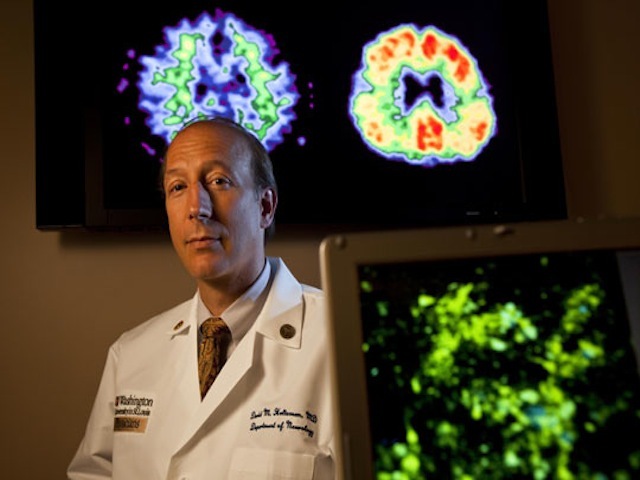Excessive levels of the protein CD33 can impede the clearance of the plaque-forming protein, amyloid beta, the key component of senile plaques in the brains of Alzheimer’s disease patients. The discovery, made by Dr. Rudolph Tanzi and colleagues at Massachusetts General Hospital, and co-funded by the Cure Alzheimer’s Fund and the National Institute of Mental Health (NIMH) will be published in the journal Neuron.
“Too much CD33 appears to promote late onset Alzheimer’s by preventing support cells from clearing out beta-amyloid containing plaques”, said Tanzi in a release issued by NIMH. The same release quotes Thomas R. Insel, M.D., Director of NIMH, as saying, “These results reveal, for the first time, a potentially powerful mechanism for protecting neurons from damaging toxicity and inflammation in brain disorders.”
The CD33 gene that produces the protein was one of four new AD gene candidates identified by Tanzi and colleagues in the Cure Alzheimer’s Fund supported Alzheimer’s Genome Project in 2008. The study was cited by TIME/CNN as one of that year’s Top Ten Medical Breakthroughs.





